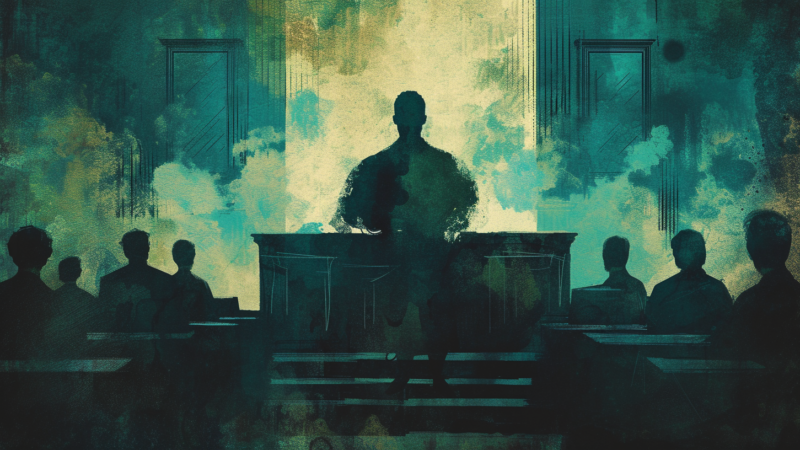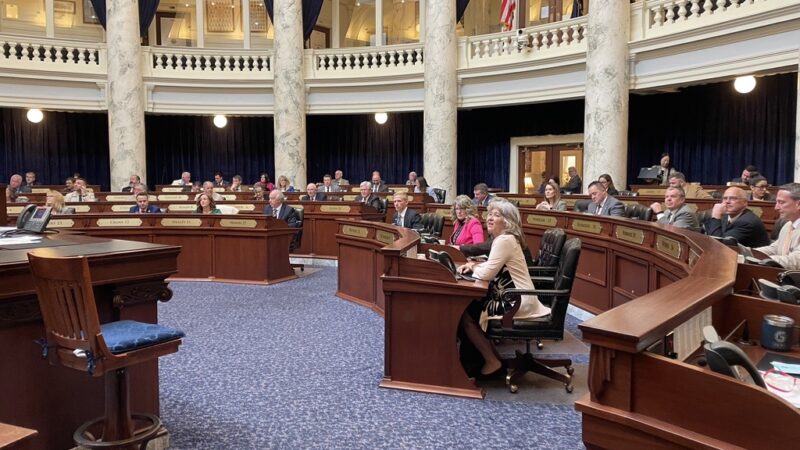STOP FUTURE MASKS MANDATES IN IDAHO H493

HFI SUPPORTS THIS BILL
H 493 Mask mandates, prohibition Rep. Gallagher
Feb 14 this bill passed the Committee Unanimously Approved to be heard on the House Floor!
Now it moves to the Senate State Affairs Committee
[email protected], [email protected], [email protected], [email protected], [email protected], [email protected], [email protected], [email protected], [email protected]
Last year a similar bill passed the House but died before it got a vote in Senate. The bill was introduced again this year and it prohibits the state government and any of its political subdivisions from mandating the use of a face mask, face shield, or other face covering to prevent the spread of disease even in the state of emergency. Political subdivisions include county and city governments, school districts, and public health districts, but does not include hospitals or health care facilities.
Miste Karlfeldt
“The government doesn’t have the right to tell the people how to care for their bodies during times of sickness or health because the government doesn’t have rights, the people do.
When it comes to requiring masks the government must be constrained from infringing on people’s natural rights like it did during the Covid debacle.”
Government was instituted to protect the inherent rights of the people. Those rights include how people choose to care for themselves. Illness and risk are part of life. Each person is responsible for deciding how to handle them. The government has no authority over our health decisions. Each person is sovereign, with bodily autonomy. Forcing a medical procedure or medical device on a person is a violation of their autonomy and inherent right of self-determination. Masks are dangerous and ineffective at preventing the spread of disease. But regardless of efficacy, forcing them on the people is tyrannical and a completely unacceptable overreach.
Sarah Clendenon
We remember the mask mandates which recently blanketed our cities and counties, many which carried the possibility of fines and imprisonment. We remember when the city of Moscow arrested three Christians peacefully singing psalms outside without masks, and when two men were arrested in Ada County for allegedly failing to appear in court when they would not mask up while trying to perform their duty of entering the courthouse. We remember witnessing a litany of abuses of power on a shocking scale with our own eyes, and we will not return to sleep.
Not only did the mandates constitute a basic violation of individual liberty, but citizens were justified in feeling insulted as well. The CDC which we were told to blindly obey has waffled on the effectiveness of masks. It is very easy to get mechanistic studies to say whatever one wants by failing to control for any one of hundreds of variables; however, randomized controlled trials, the gold standard of effectiveness research, clearly indicate that masking doesn’t work. Evidence on a policy scale also shows that mandates don’t work.
The fact that mandates tended to allow masks of very low quality raises questions as to what the actual goal was. The required “coverings” undoubtedly resulted in a moist petri dish on one’s face, with the expected consequences. The emotional toll it took on children should have been a consideration along with the impact on their mental health and social development. Avoiding the many cognitive and health issues associated with cortisol levels increased by mask-induced mouth-breathing should also have been considered. The list of severe concerns goes on. Keeping in mind the utter confusion of the whole ordeal, it is understandable that many wondered if this effort to occlude the human face was not below the surface a more fundamental attempt to obscure the image of God with which we were made, and the requirement to blindly obey not a precursor to something worse.
Overall, no matter the rationale of various mandates, I have already been given ample evidence not to put too much trust in government, and I also believe that those coercive policies are outside the valid role of government. House Bill 493 responds to this reality by prohibiting government entities from mandating masks, with the exception of vocations where it is already integral to wear them. Local jurisdictions retain all powers that would not infringe on the individual’s rights. This legislation has my full support.
Ben Toews Idaho State Senator District 4
TALKING POINTS:
**1. Effectiveness of Surgical Masks:**
The efficacy of surgical masks remains inconclusive despite widespread belief in their effectiveness. Randomized controlled trials (RCTs) have struggled to provide definitive conclusions, with cumulative reviews highlighting the limitations of available evidence
**2. Hazards of Wearing a Mask:**
Wearing masks may inadvertently create conducive environments for the proliferation of pathogens, as increased sweating around the mouth can encourage bacterial survival. Additionally, prolonged mask-wearing, especially among children, poses risks to respiratory health, including discomfort, skin irritation, and breathing difficulties.
**3. Psychological and Societal Impacts:**
The psychological and societal impacts of prolonged mask use cannot be overlooked. Studies suggest that extended mask-wearing can lead to mental fatigue, decreased cognitive performance, and heightened psychological distress, particularly among vulnerable populations. The imposition of mask mandates may exacerbate existing disparities and contribute to societal tension.
**4. Ethical Considerations:**
Mandating universal mask use raises ethical concerns regarding personal liberties and autonomy. Individuals should retain the right to make informed decisions about their health without undue government intervention. Mandates that infringe upon personal freedoms without clear evidence of benefit risk undermining trust in governmental authority and eroding social cohesion and trust in the government.
The imposition of blanket mandates without due consideration of their limitations and potential drawbacks raises significant ethical and practical concerns. Alternative strategies, such as mask recommendations and targeted interventions, should be explored to strike a balance between public health imperatives and individual rights.

The impact of mandating universal mask use stretches beyond mere inconvenience—it delves deep into our fundamental rights and the very essence of our humanity.
Imagine a world where children, innocent and impressionable, are born into a reality where faces are hidden behind layers of fabric. For these little ones, learning the subtleties of social interaction becomes a daunting challenge. Their tiny minds, eager to absorb the world around them, are met with a barrier—literal and metaphorical—hindering their ability to connect, communicate, and comprehend.
Now the tender age of four, these children struggle, stifled by masks that obscure smiles, muffle laughter, and dampen the warmth of human connection. The very fabric of their social development is frayed, as they grapple with the frustration of deciphering emotions through a veil of uncertainty.
Concerns about long-term adverse effects of wearing masks and being surrounded by individuals in masks and its impact on children’s development warrant careful consideration.
CHILDHOOD DEVELOPMENT
Long-term mask-wearing can hinder language development, particularly among young children who rely heavily on visual cues for language acquisition.
- Masks obscure facial expressions and mouth movements, making it challenging for children to learn and understand speech. This impediment to clear communication may have lasting effects on language development and interpersonal skills.
- Social Cues and Interaction: Masks obscure facial expressions, making it difficult to interpret social cues and emotions during interactions. This can lead to misunderstandings, miscommunication, and decreased social connection.
- Prolonged exposure to masked individuals may result in diminished social skills and increased feelings of isolation, particularly among children and adolescents who are still developing social competencies.4
But the impact doesn’t stop there. For every child forced to navigate a world where facial expressions are shrouded, a parent is agonizing over the implications. Will their child’s speech development suffer? Will they grow up lacking the essential skills to navigate the complexities of human interaction? The weight of these questions hangs heavy, as families grapple with the unforeseen consequences of mandated mask-wearing.
And let’s not forget the toll on our collective psyche. Beyond the physical discomfort and respiratory hazards lies a deeper, more insidious threat—the erosion of trust, both in our institutions and in each other. Mandates imposed without due consideration for individual liberties sow seeds of discontent, breeding resentment and suspicion where trust once flourished.
At its core, the debate over mask mandates transcends mere policy—it’s a battle for our autonomy, our freedom to make choices that shape our lives. We must tread carefully, mindful of the ethical implications that accompany such sweeping measures.
For in our quest to safeguard public health, we must not sacrifice the very principles upon which our society is built—freedom, autonomy, and the unyielding belief in the inherent dignity of every individual.






